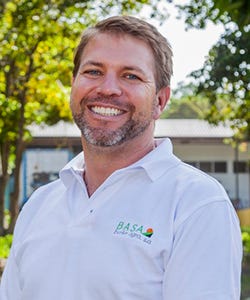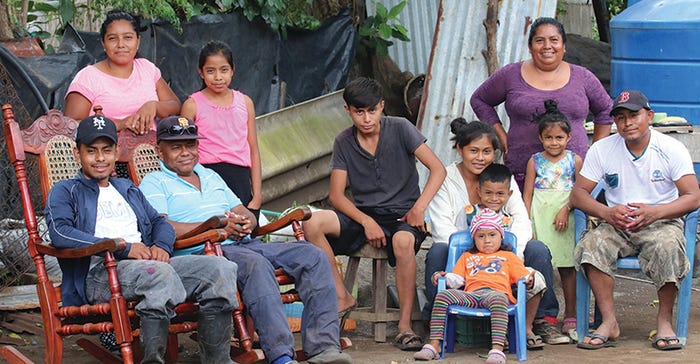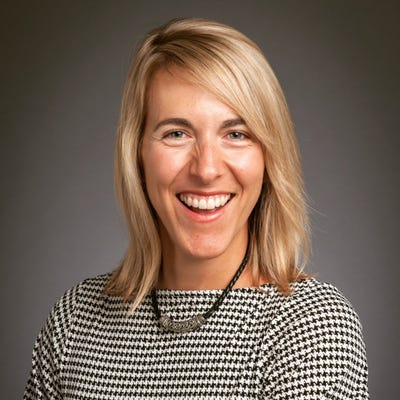March 10, 2020

Education has always had a profound effect on Sol Simple founder Will Burke. Since he taught English literature in Nicaragua to U.S. Embassy dependents, he has never looked back.
Astonished by the amount of fruit that went unused in a nation that struggles economically, Burke created in 2007 a line of dried fruits and juices that’s centered around educating and uplifting Nicaragua’s smallholder farmers.

“Our products will help save the planet,” Burke says. “We know everyone’s name involved in growing our fruit. We invite consumers to join the revolution, to come get their hands dirty.”
Sol Simple is a Certified B Corporation and one of the first companies to earn Regenerative Organic Certification. Its products—sold at retail primarily in Southern California and the Northeast, as well as online through Amazon—are Non-GMO Project Verified and Fair Trade Certified. What’s more, Sol Simple has formed partnerships with like-minded brands such as Patagonia Provisions, Pitaya Plus, HiPP Organic and Innocent Drinks to advance its mission.
New Hope Network caught up with Burke to learn about life in Nicaragua and what inspires him to embody “soul to sol” through every step of the supply chain.
Sol Simple was founded upon recovering wasted food. What has this meant for the people of Nicaragua?
Will Burke: We trained the first certified-organic fruit growers in Nicaragua and made an impact on their vision of what they can achieve. Together, we are solving a problem rather than contributing to it by rewarding local growers for their production. Meanwhile, we are creating a market-based sustainable solution that improves product quality and creates healthier topsoil—on land they can proudly hand down to the next generation.
You know your farmers by name. Why do you believe this is so critical?
Back in the day, you would know your farmer. They were your neighbors. There was trust. That’s how verification happened—it was communal. We are using this same model and are supporting farmers through technical assistance. They have invited us to be there and support their work, and with that privilege comes responsibility. We’ve been working with some of our farmers, such as Fausto Calero, for 12 years now. There is a growing movement to return to the land and feel more connected to what we eat.
How do you educate consumers about your mission?
Once we are on shelf, that’s the true opportunity. We are offering consumers the choice to support small farmers and have a profound social and environmental impact. No other brand in the tropical fruit category is as close to the grower as we are. Working to be 100% regenerative and to transfer regenerative agriculture know-how to other crops and farmers throughout Nicaragua and beyond is our ultimate goal.
How do you share your “from soul to sol” story on the package?
Our company is focused on education. Through small graphics and short blurbs about our farmers, we emphasize our involvement in each step of the value chain and how we are reshaping the food system by using solar energy and fighting for gender equity. We have transitioned 1,150 farmers from conventional to organic to regenerative, almost 30% of whom are women. I know that in supporting a single mother, we are supporting the education of a child and the community.

How do you position your products in mass, natural and online?
Delicious, convenient snacks that are healthy and sustainable are in high demand. Our mission resonates in retail when there is more opportunity to engage with the packaging and story. We’ve always found that once we can get face time with buyers to show data that highlights our impact, they end up wanting to support our mission and offer our products to their customers. Nicaragua is the second-poorest country in our hemisphere, and while most of our consumers haven’t been there, they are encouraged by supporting small farmers.
Why is it important for your products to be in independent retail stores?
Independent retail stores are nimbler; they can take risks. If they like something, they commit to it and their communities support them. The connection is a deeper, direct relationship, representing authenticity and innovation. I started Sol Simple by selling door-to-door to specialty and independent natural grocers throughout California, first Bi-Rite in San Francisco and then Rainbow Acres in Venice Beach. Having those two was a real affirmation for me in the early days.
What has surprised you most about the industry?
This is not necessarily a surprise, but it is overwhelming how many companies are now seeking deeper connections with their supply chains. In order to address this evolution, we have another arm of the business called Burke Agro, which organizes smallholder farmers and offers them financing for technical assistance.
Then we have Sol Organica, which is solely focused on ingredient processing and co-packing. We have been fortunate to partner with great leaders like Patagonia Provisions who really walk the walk and understand the urgency to challenge the current food system to combat climate change.
Sol Simple won a NEXTY Award for Best New Transparently Sourced Product at Expo East 2016. What does transparency mean to you?
Each of our packages can be traced back to where every morsel of mango, bite of banana and piece of pineapple comes from. Sol Simple is an open book, and we invite our customers to participate directly in supply chain development with us. As a Certified B Corp, we were even a “Best for the World: Communities” honoree in our first year. We are a tiny company and we are swinging for the fences.
You have spent most your career in Nicaragua. How does life there inspire Sol Simple’s mission and future?
In Nicaragua, 70% of exports come from small farmers. Consumers need to understand the impact their dollars have. You can support the antagonist or support the solution. Farmers are the ones preserving our way of life, yet they are most at risk in the value chain. Our food system isn’t set up to support them. We must be more connected to what feeds us. The more you know, the more you need to act.
About the Author(s)
You May Also Like
.png?width=700&auto=webp&quality=80&disable=upscale)




